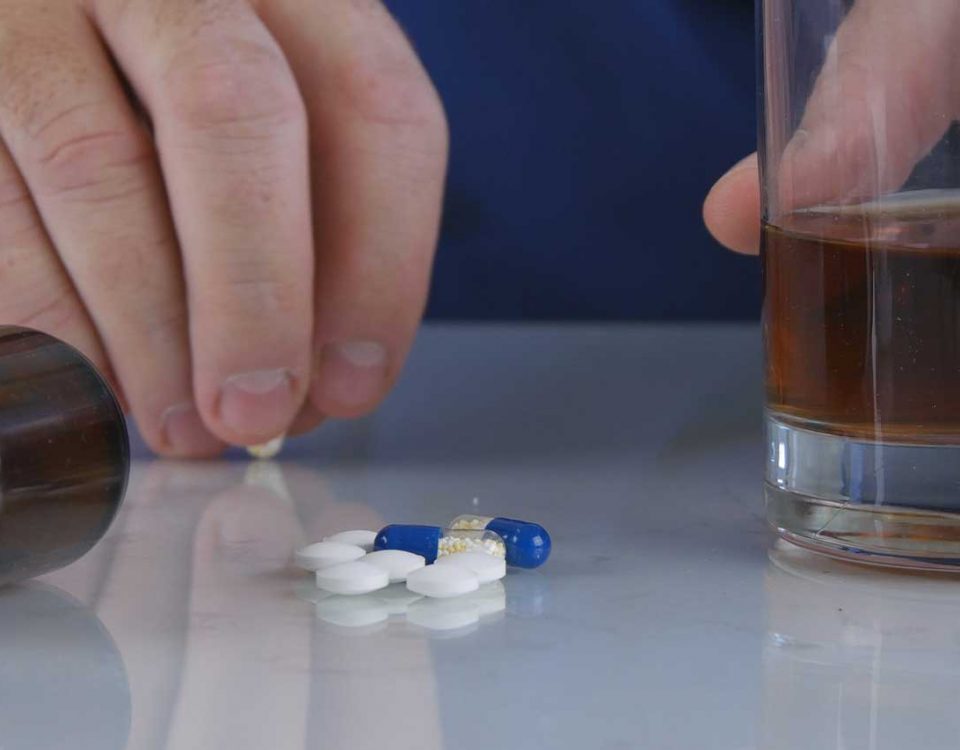Adderall is a prescription medication commonly used to treat attention deficit hyperactivity disorder (ADHD). This stimulant medication contains amphetamine salts, which work by affecting the levels of certain neurotransmitters in the brain to enhance focus and attention, particularly dopamine and norepinephrine. While Adderall can be highly effective for its intended purposes, its use is not without potential side effects, including some that affect the skin. The addiction experts at our Florida rehabs will explore the various Adderall skin problems that may occur with use, including the possibility of skin sores and pruritus.
What Is Adderall?
As mentioned, Adderall is a prescription medication often used to treat ADHD and, less commonly, narcolepsy. It is a central nervous system (CNS) stimulant that contains a combination of two active ingredients: amphetamine and dextroamphetamine. These active substances belong to a class of drugs known as amphetamines.
Adderall affects the brain by targeting certain neurotransmitters, primarily dopamine and norepinephrine. These neurotransmitters play essential functions such as attention, focus, and impulse control. When taken as prescribed by a medical professional, Adderall can help individuals with ADHD or narcolepsy manage their symptoms more effectively.
The hallmark side effects of Adderall include:
- Improved focus: Adderall can improve concentration and the individual’s ability to maintain attention on tasks or activities, making it particularly beneficial for people with ADHD who struggle with inattentiveness and being easily distracted.
- Increased alertness: The medication can help individuals stay awake and alert, which is especially beneficial for those with narcolepsy, a condition characterized by sudden and uncontrollable daytime sleepiness.
- Decreased impulsivity: Adderall can reduce impulsive behaviors, allowing individuals to think before acting and make more intentional decisions.
Adderall is available in various forms, including immediate-release (IR) and extended-release (XR) formulations. Immediate-release Adderall typically provides a rapid onset of action, while extended-release formulations are designed to have a longer-lasting effect, requiring less frequent dosing.
Adderall is classified as a Schedule II controlled substance due to its potential for abuse and dependence. Therefore, it should only be used under the close supervision and guidance of a qualified healthcare provider who can monitor side effects and adjust the dosage as needed.
Misuse or the use of Adderall without a prescription can result in various health effects and is illegal. Adderall should only be taken exactly as prescribed by a healthcare professional and communicate any side effects or concerns with said professional. Additionally, Adderall should not be shared with others or used recreationally, as it can have grave consequences for one's health and well-being.
Can Adderall Cause Skin Problems?
Adderall is known to have several potential side effects, ranging from mild to severe. While increased focus and concentration are the drug's hallmark effects, Adderall does cause skin problems in some individuals using the drug either with a prescription or illicitly. While not everyone who takes Adderall will experience skin issues, it is essential to be aware of the possibility.
Common Adderall-related skin problems include:
- Acne: Acne is a common skin condition characterized by the presence of pimples, blackheads, whiteheads, and, in some cases, inflammation. While not everyone taking Adderall will develop acne, it may occur in some individuals taking the medication. Drug-induced acne can be particularly concerning for those who are already prone to this skin condition.
- Skin dryness: Stimulant medications like Adderall can sometimes lead to dehydration, which, in turn, can cause dry skin. Dehydrated skin may feel rough, flaky, or tight. It's important to drink water to stay well-hydrated and use moisturizers to keep the skin hydrated to alleviate this symptom.
- Skin rash: Skin rashes are characterized by a change in the color or texture of the skin and can vary from small, red bumps to larger, raised patches. While the connection between Adderall and skin problems is not well-defined, rashes may be a sign of a potential allergic reaction to the medication.
- Skin sensitivity: Some individuals may experience increased skin sensitivity while taking Adderall. This heightened sensitivity can make the skin more prone to discomfort or irritation from factors like clothing, temperature changes, or friction. Without proper care, the individual may experience skin irritation, rashes, scratches, and other problems that could potentially lead to additional symptoms or scarring.
- Stevens-Johnson Syndrome (SJS): SJS is a rare and serious disorder that attacks the skin and mucous membranes. It is usually a reaction caused by a medication that starts with flu-like symptoms, followed by a painful rash that spreads throughout the body and blisters. Eventually, the top layer of skin dies, sheds, and begins to heal. According to the U.S. Food and Drug Administration, skin rashes, including SJS and even hair loss, have been reported with Adderall use.1
Keep in mind that not everyone who takes Adderall will experience skin problems. Additionally, the severity of these issues can vary from person to person. If you are concerned about any Adderall skin problems, consult your healthcare provider. They can help assess the specific condition, determine its cause, and recommend appropriate treatment or adjustments to your medication regimen if needed.
Does Adderall Cause Skin Sores?
Skin sores are a less common side effect of Adderall, but they have been reported by some individuals. As we mentioned previously, a major skin disorder called Stevens-Johnson Syndrome has been reported with Adderall use by the FDA.
Adderall skin sores can manifest as painful, open lesions on the skin. While the reason this occurs is unknown, it is crucial to report any unusual skin symptoms to a healthcare provider promptly. Such symptoms may include redness, swelling, tenderness, or the development of open sores.
It is also worth mentioning that these skin sores may not be directly caused by Adderall itself but rather by secondary factors. Stimulant medications like Adderall can lead to decreased appetite and weight loss, which may result in nutritional deficiencies and a weakened immune system, factors that may also contribute to the development of skin problems such as skin sores.
Can Adderall Cause Pruritus?
Pruritus, a medical term for itching, is another skin-related issue that some individuals taking Adderall may experience. Itching can be bothersome and uncomfortable, and it may lead to scratching, which can further damage the skin.
Why Adderall causes pruritus is not well-defined, but it could be associated with several factors. Pruritus can occur for various reasons, including skin dryness, allergic reactions, or even psychological factors.
If you are experiencing pruritus while taking Adderall, it is advisable to consult your healthcare provider. They can help determine the underlying cause of the itching and recommend appropriate treatments, which may include moisturizers, antihistamines, or adjustments to your medication regimen.
Help for Adderall Abuse at Banyan
Adderall is a medication prescribed to treat ADHD, but like any medication, it can have side effects. Skin problems, including skin sores and pruritus, have been reported by some individuals taking Adderall. While these side effects are not common, they can be distressing when they occur.
It is essential for individuals taking Adderall to be aware of the potential for skin issues and to promptly seek medical attention if they experience any unusual symptoms. The exact cause of these skin problems can vary, but they may be related to factors such as decreased appetite, weight loss, nutritional deficiencies, or other underlying conditions.
Additionally, Adderall is often used outside of prescription uses, either in the belief that it will improve work or school performance or for its stimulating effects. Regardless of the reason, using prescription stimulants without medical direction increases one’s risk of developing dependence and addiction.
If you or someone you care about has developed a dependence on Adderall, do not wait to get help. Our drug rehab in Sebring, FL, offers prescription drug addiction treatment that addresses addictions to medications such as Adderall via medical detox, psychotherapy, and more.
Call Banyan Treatment Centers today at 888-280-4763 or contact us online for more information about our prescription drug detox and addiction services.
Source:
- U.S. Food and Drug Administration - Adderall® CII (Dextroamphetamine Saccharate, Amphetamine Aspartate, Dextroamphetamine Sulfate, and Amphetamine Sulfate Tablets)









